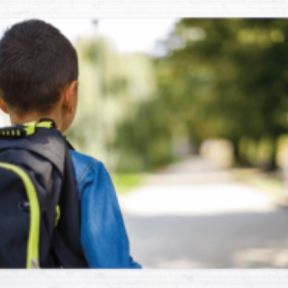
Academic Problems and Skills
Every school wants every child under its charge to receive the same educational opportunities. However, some students develop academic problems that may cause them to underachieve and, in extreme cases, drop out of school entirely. These problems include confusion about or disinterest in a subject, time management (including procrastination), lack of attention from teachers, bullying, and inappropriate or violent behavior toward others. While many academic problems can be resolved if caught early and tackled with the help of professionals, some difficulties can persist for years, wreaking havoc on the student’s self-esteem and social relationships.
Conversely, academic skills can be protective influences for students, driving them to achieve their goals. Examples include staying organized, using time wisely, prioritizing effectively, concentrating on tasks, and keeping motivated. With all of the responsibilities that students need to manage at school and at home, these abilities are essential to their success.

Teachers and parents are often the first line of defense against academic problems. They should be attuned to any changes in the child’s behavior—such as a drop in grades, a sudden lack of interest in the classroom or at home, skipping classes, or a tendency to act out with teachers or peers or family members. These behaviors may signify an underlying cause that needs to be addressed. It’s important for adults to identify any contributing factors of trouble. A person’s physical health can have a powerful effect on academic performance, and vice versa. If adults see concerning behavior, they should find out if the student is experiencing a lack of sleep, poor nutrition, chronic illness, or a newly developed loss of vision or hearing.
Academic problems can also indicate a possible learning disability, such as dyslexia or ADHD. In such cases, student performance may benefit from school accommodations, such as extra time on tests or additional visual or auditory learning aids for lessons. Parents may also want to consider whether there is a better fit for their child, including placement in a special education classroom with fewer students and specially trained staff.
Children and teens are more anxious than ever before. Risk factors like poor sleep and exposure to violence are on the rise. Parents and school personnel need to know how to identify the warning signs, deploying intervention immediately to prevent at-risk students from harming themselves and others.

Trouble at school can be both a symptom and a risk factor of mental health conditions. Students today are under extraordinary pressure to excel at academics and extracurriculars, leading to massive stress and worry. When students feel like they cannot measure up to these high and unfair standards, they may develop problems ranging from general anxiety to depression to thoughts of suicide.
Students also have to cope with greater insecurity and a feeling that the world is less safe, given the rise of political instability and violence at schools, particularly mass shootings. This can cause great emotional upset and make it difficult to perform at peak levels.
Ordinary disciplinary measures increase aggression in students. And in turn, this increases everyday violence. Students and teachers are on edge. Plus, anxiety about the possibility of a school shooting is common among students, parents, and school staff, despite the additional safety precautions that many schools are taking.
Students can build up resilience to the stress and anxiety they feel daily in several ways. They can cultivate strong relationships with their peers and teachers and look for opportunities to maximize their strengths as well as engage with the school community. They should also pay attention to their bodies and understand the importance of self-care—getting enough rest, hydrating, eating healthy foods, and exercising.
Healthy ways to address these fears include making sure students have accurate information, keeping an open line of communication, asking questions rather than making statements, discussing emotions in an age-appropriate manner, and having students describe what would make them feel safer.

Students who are confident and successful in school tend to share particular academic strengths. While some of these skills may come more easily than others, with time and attention, students can build up their proficiency in most of these areas. Not only do colleges and universities look for these qualities when considering applicants, but they also will serve people well as they transition into the workforce and adult life. Important academic strengths include:
-
Attention to Detail: Someone with this strength is able to follow instructions while making fewer mistakes. They find it easier to focus on the task at hand and complete an assignment.
-
Cognitive Flexibility: The most successful students are cognitively flexible and able to adapt to new challenges and changes. A flexible mind moves from task to task, applying what was previously learned to new contexts and problems.
-
Communication: Humans are social by nature and communicating well, both orally and in writing, is crucial. The ability to clarify goals and expectations furthers cooperation.
-
Creativity: Innovation and the ability to think more abstractly are in high demand both academically and professionally. Creative thinkers generate great works of art as well as smart solutions to modern problems. Technology evolves daily and creativity is a valuable strength.
-
Critical Thinking and Problem Solving: Over time, students may forget the details of what they formally studied. However, the ability to think critically allows one to learn efficiently, identify problems, find solutions, evaluate progress, and make plans for the future.
-
Organization: Students must juggle competing demands, including school assignments, exams, extracurricular activities, family obligations, relationships, and more. Planning ahead, stating clear goals, prioritizing tasks, and managing time can help organizational skills.
-
Passion: Being thoroughly engaged in a subject can be a powerful motivation for students. A person who is curious and enthusiastic shows a commitment to learning, a positive quality that stands out.
-
Resilience: Even the best students face academic challenges. After a failure, the resilient learn from their failures and bounce back. They persevere and overcome new obstacles readily.














